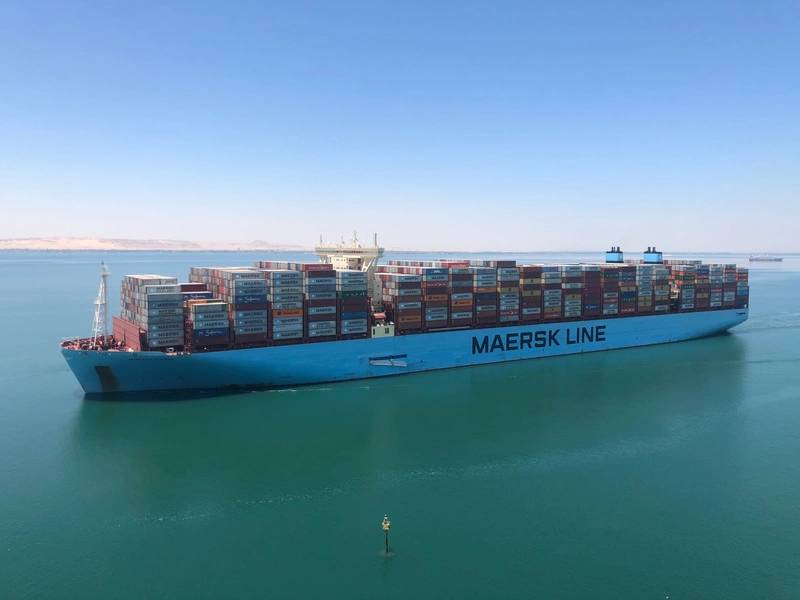Maersk Vessels Transmit Live Weather Data to Meteorologists
Container shipping giant A.P. Moller - Maersk said it has teamed up with National Meteorological Service of Germany, Deutscher Wetterdienst (DWD) to install automated weather stations enabling a portion of its fleet to transmit live data to help forecast weather and climate.
In the largest project of its kind, A.P. Moller - Maersk (Maersk) has installed automated weather stations (AWS) on 50 of its vessels creating a pulsating oceanic web of weather and climate observations. All collected data is transmitted live to the National Meteorological Service of Germany, DWD, supporting their weather forecasts and climate science.

Maersk and DWD have collaborated on the project since 2019 with the German service providing the 50 systems being installed on the vessels.
“There is no doubt that climate change is one of the biggest challenges facing the global community and it impacts our business as well as the societies and customers we serve and partner with to enable trade. We have an ambitious strategy for our business to achieve net zero greenhouse gas emissions in 2040, and we are proud to have our vessels and crews help researchers in gaining a better understanding of this key global challenge and the impact it has on our surroundings,” said Aslak Ross, Head of Marine Standards at Maersk.
As a part of Maersk’s ESG strategy, the company has committed itself to contribute to climate science. Maersk vessels have also for years been operating within the global Voluntary Observing Ship (VOS) Scheme under the Global Ocean Observing System (GOOS) providing regular weather observations, but it has been done manually resulting in a slow process of data sharing. By implementing AWS, the vessels can deliver precise high-quality and standardized data in real-time giving DWD useful insights about the current meteorological situation at sea. The data provided is shared globally with all members of the World Meteorological Organization (WMO).
“The collaboration with Maersk continues to have a positive impact on the maritime industry,” said Darin Figurskey, the global lead for Ship Observations Team (SOT) under GOOS and a forecaster himself at the U.S. National Oceanic and Atmospheric Administration (NOAA).
“Additional observations on more vessels will help forecasters become more situationally aware, provide added information for forecasts, warnings, and numerical weather prediction, and ultimately help scientists understand more about our oceans and climate,” said Darin Figurskey.
Even today, where much of the meteorological data is acquired by satellites, the real-time data from the world’s oceans provides essential input to all weather models used for forecasts and warnings. Especially the surface atmospheric pressure is of high importance since it cannot be measured by satellites. AWS on ships provides a constant feed of high-quality data at sea and serves as the backbone for all numerical weather models.
Weather and sea state observations have been gathered and shared on a systematic basis for over 150 years. They provide essential data on meteorological conditions at sea for weather forecasts and, over long-time scales, help climate scientists understand climate change. Ship observations, alongside other ocean, land-based, and satellite observations, are used in global and regional climate analyses, and are combined with atmospheric-ocean climate models, that depict the evolution of our environment. These observations also help to ensure safety at sea by allowing better forecasting of storms and other extreme ocean-related events for seafarers and nations.
“As a global container logistics company, we are moving millions of containers across the oceans every year, and weather routing is extremely important to ensuring safe travel of our crew and our customers’ cargo. If we can help facilitate even marginal improvements to the quality of weather routing services, these will be important levers in our constant efforts to improve the safety of our crews and assets,” said Aslak Ross.
Approximately 300 fully owned Maersk vessels are gathering and sharing their weather and sea-state observations with the VOS.
Recently, Maersk also announced that it releases all historical and future ocean weather observations into the public domain for free use by the scientific community around the globe
